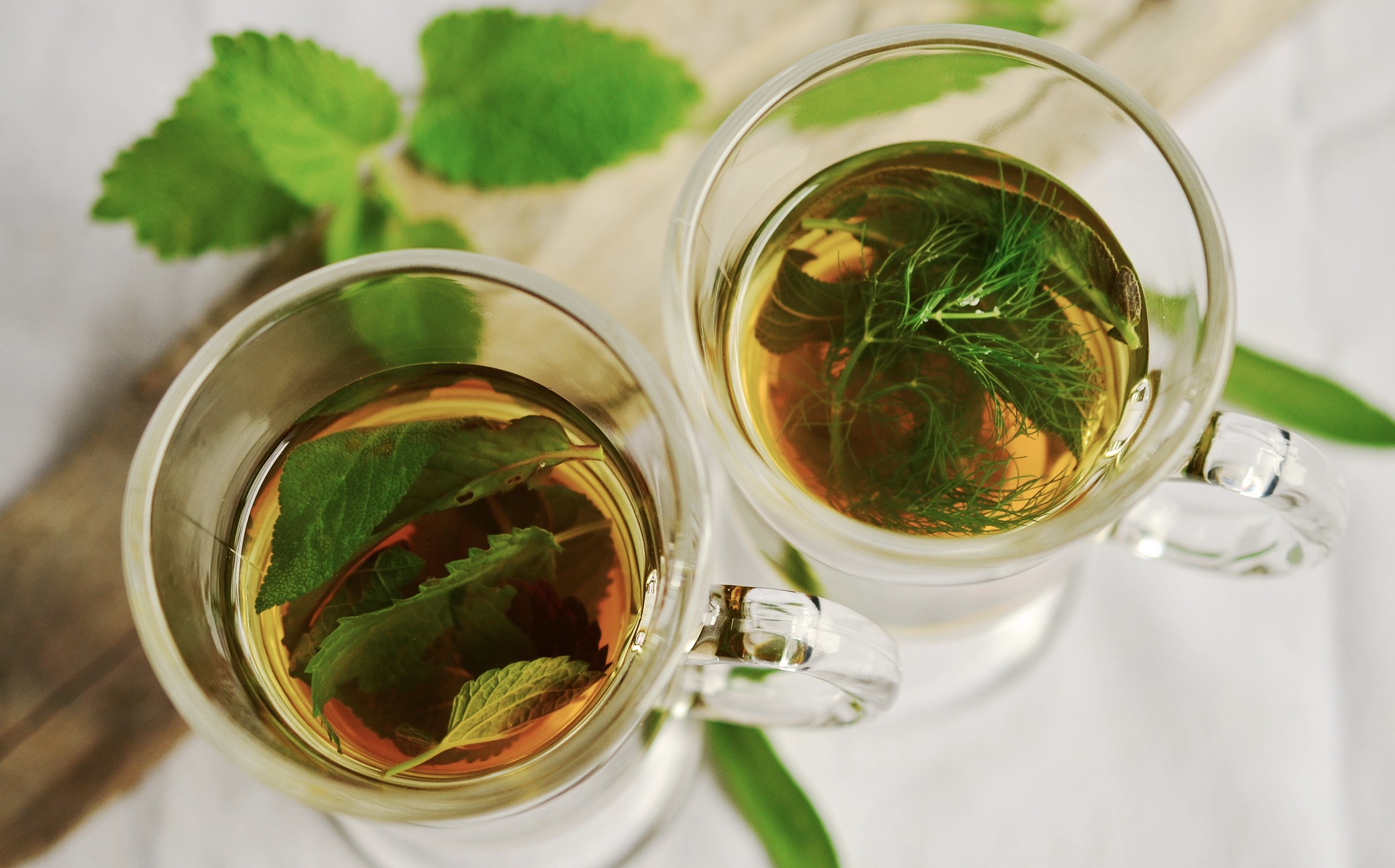Tea for Health
Aromatic spices tend to enhance digestion, reducing the tendency for post-meal gas and bloating. Most of the aromatics are also anti-inflammatory and have some blood sugar lowering effect. Chai tea is the quintessential aromatic blend. There are a number of decaf and sugar-free chai blends available, and include herbs like cinnamon, cardamon, clove, fennel, orange peel, turmeric, and ginger.
Mints, such as peppermint, spearmint, basil, and lemon balm are also aromatic digestives. Tulsi tea, known as holy basil, is a mint known for its blood sugar mitigating effects and antioxidant benefits. Most mints are slightly energizing, so they may balance post-meal fatigue. When you make tea with these herbs, cover your teacup while steeping — this will help keep the aromatics in.
Bitter flavors are also great for digestion, by keeping your digestive juices flowing and motility happening. Herbs like chamomile, dandelion, or Farmacopia’s Reishi Roast tea can improve the digestion of fats, reduce the chances of constipation after heavy meals, and also help keep blood sugar more stable.
If you’re buying bagged teas, make sure they’re organic, as conventional herbs can have high pesticide residues. I suggest that people avoid teas with natural flavors as well. It’s hard to tell what the sourcing of the flavoring agent is, so for those with food sensitivities or allergies, they can be problematic. Also, it may allow companies to use poorer quality ingredients if they are covering up the herbal notes with flavorings.
If you want sweetness without added sugars, a pinch of licorice powder or stevia leaf can go a long way. Sip and enjoy!



